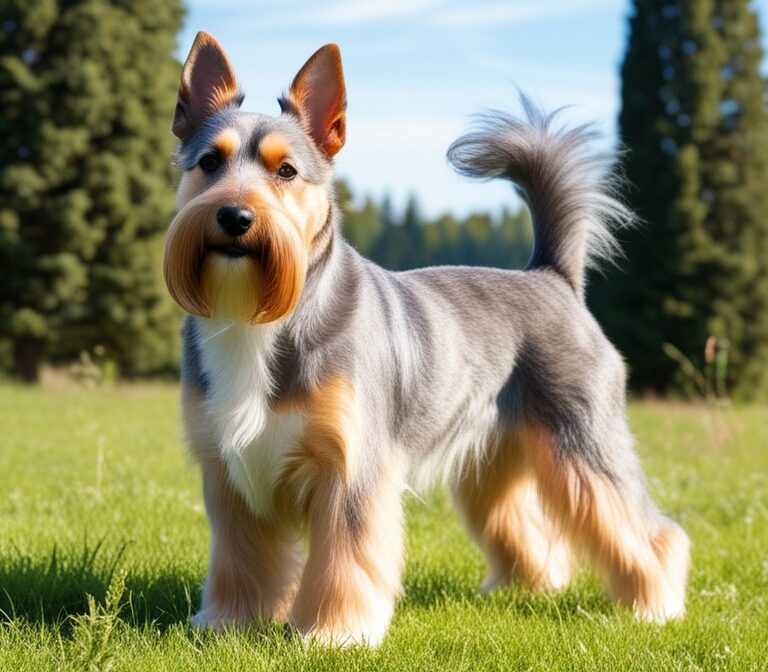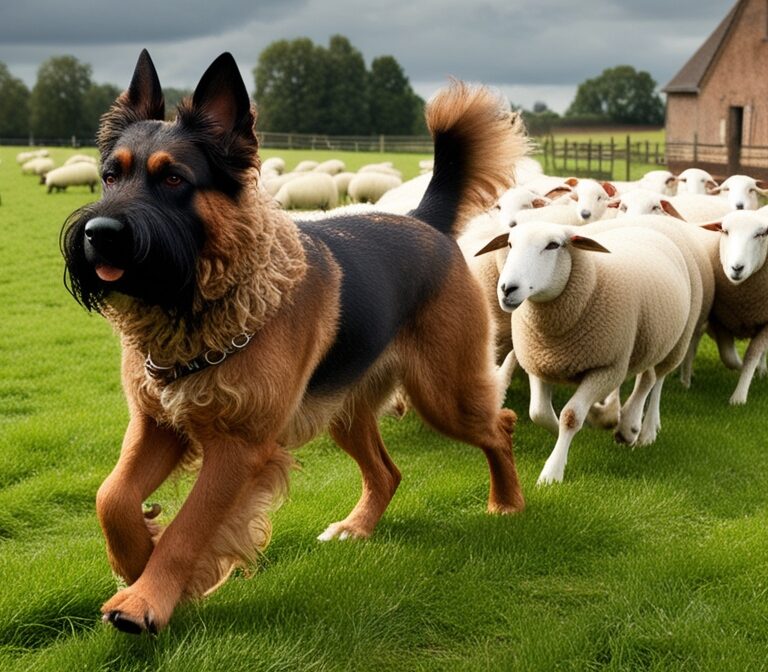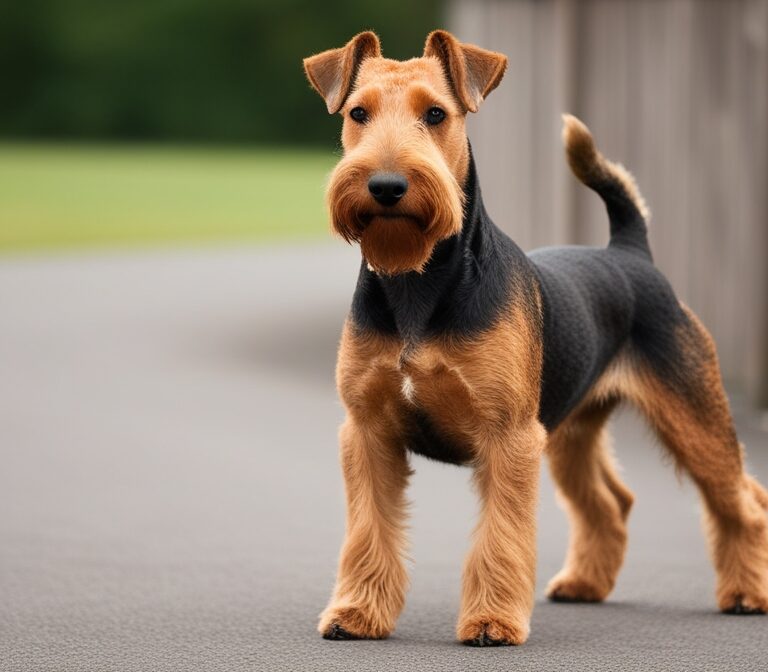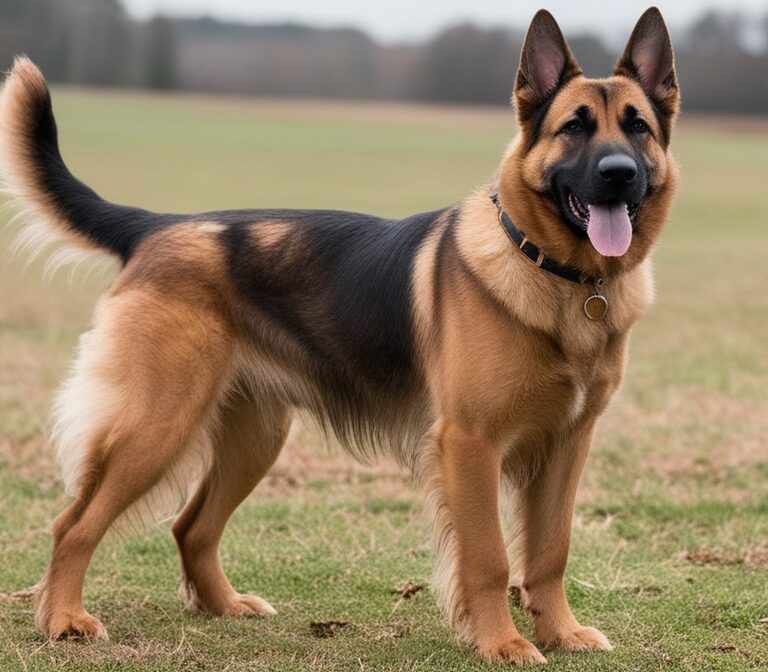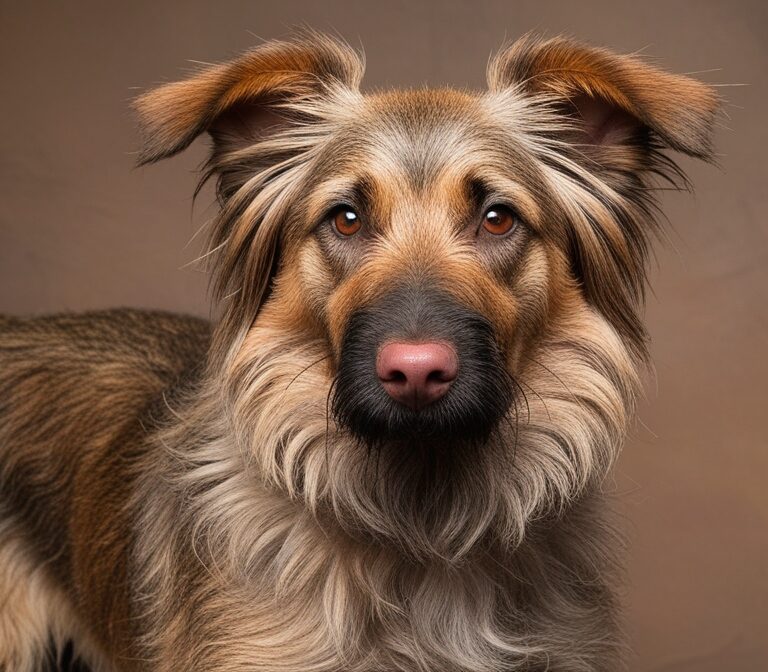Canaan Dog: Complete Guide to the Ancient Breed of the Middle East

Origins and Historical Roots of the Canaan Dog
The Canaan Dog is one of the oldest known domesticated breeds, tracing its lineage back thousands of years to the deserts of the Middle East. This ancient breed was used by nomadic tribes as a versatile working dog, prized for its ability to herd, guard flocks, and survive in some of the harshest climates on earth. Archaeological evidence suggests that dogs resembling the Canaan Dog appear in ancient rock carvings and writings, signifying its deep historical presence. During biblical times, these dogs were described as “pariah dogs” roaming freely in villages and settlements. Their natural instincts for survival, independence, and adaptability made them invaluable partners to shepherds and tribes who relied on them for protection and livestock management. Unlike many modern breeds developed for specific traits, the Canaan Dog’s characteristics are shaped by centuries of natural selection, making it one of the most authentic links to the early domestication of dogs.
Physical Appearance and Distinctive Features
The Canaan Dog carries an unmistakable look that blends elegance with rugged functionality. Medium in size, with a sturdy yet athletic build, the breed typically weighs between 35 and 55 pounds, standing around 19 to 24 inches tall. Its wedge-shaped head, erect ears, and almond-shaped dark eyes give it an alert and intelligent expression. The breed has a thick double coat that protects it from the extremes of both desert heat and cool nights, with colors ranging from sandy, red, and brown to black and white patterns. A bushy, high-set tail that curls over the back adds to its striking silhouette. Unlike some breeds bred for exaggerated features, the Canaan Dog remains true to its practical origins, designed by nature for resilience and agility. Every physical trait, from its compact paws to its dense coat, serves a purpose, ensuring the dog could thrive in the wild and adapt seamlessly to its working roles.
Temperament and Personality of the Canaan Dog
The Canaan Dog is known for its sharp intelligence, independence, and natural wariness, traits that stem from its survival instincts in the wild. Unlike breeds that eagerly greet strangers, the Canaan tends to be reserved, often standing back to assess situations before engaging. This makes it an exceptional watchdog, always alert to changes in its environment and quick to signal anything unusual. With family, however, the breed is deeply loyal and affectionate, forming strong bonds and often displaying a playful, gentle nature with children. Their independent streak means they may not always seek constant attention, but they remain deeply connected to their households. Training requires patience and consistency, as they respond best to positive reinforcement rather than harsh methods. For experienced dog owners who value a breed with intelligence, adaptability, and a balanced temperament, the Canaan Dog offers both companionship and a steadfast protector in the home.
Training Challenges and Opportunities
Training a Canaan Dog can be both rewarding and challenging, as the breed’s intelligence is matched by a strong independent spirit. Unlike breeds bred to work closely with humans, the Canaan retains its instincts for self-reliance, which can sometimes be mistaken for stubbornness. To successfully train a Canaan, owners must establish firm yet gentle leadership and create a consistent routine. Positive reinforcement techniques—such as treats, praise, and play—are far more effective than punishment-based methods, which can damage trust. Early socialization is critical, helping the dog adjust to various environments, people, and other animals. Without proper socialization, the Canaan Dog’s natural wariness can develop into shyness or excessive suspicion. Advanced training, such as agility or obedience trials, can also provide mental stimulation and strengthen the bond between dog and owner. With patience and persistence, the Canaan Dog proves to be a fast learner, excelling when guided by a confident and understanding handler.
Exercise Needs and Energy Levels
Despite its desert heritage, the Canaan Dog has moderate exercise needs that align well with an active family lifestyle. This breed enjoys daily walks, play sessions, and opportunities to explore outdoor environments, but it is not as demanding as high-energy working dogs like Border Collies or Belgian Malinois. Canaan Dogs thrive on variety in their activities, appreciating a mix of physical exercise and mental challenges to keep them engaged. Activities such as hiking, agility training, or herding simulations suit their natural abilities and instincts. Because of their alertness and guarding tendencies, they also benefit from games that stimulate their problem-solving skills, like scent tracking or puzzle toys. While they adapt well to suburban or rural life, they can also manage in urban settings provided their exercise and mental stimulation needs are met. Regular activity not only supports their physical health but also curbs unwanted behaviors that can arise from boredom.
Grooming and Coat Maintenance of the Canaan Dog
The Canaan Dog’s double coat is one of its defining features, designed by nature to endure harsh desert climates. It consists of a dense undercoat and a coarse outer layer that provides insulation against both heat and cold. Grooming requirements are moderate compared to long-haired breeds but still demand consistency to maintain coat health. Weekly brushing helps reduce shedding and keeps the coat clean by removing loose hair and debris. During seasonal shedding periods, daily grooming may be necessary as the undercoat is shed heavily. The coat is naturally weather-resistant, meaning frequent baths are unnecessary unless the dog becomes especially dirty. Overbathing can strip the natural oils that protect the skin and coat. Nail trimming, ear cleaning, and dental hygiene should also be part of regular care routines. With a little maintenance, the Canaan Dog’s coat remains attractive, functional, and reflective of the breed’s ancient desert survival heritage.
Health Considerations and Lifespan
The Canaan Dog is considered one of the healthiest purebred dogs, largely due to its natural development rather than selective breeding for extreme traits. With proper care, they often live between 12 and 15 years, making them a long-lived companion compared to many modern breeds. While generally robust, they can still be prone to certain health conditions, including hip dysplasia, progressive retinal atrophy, and patellar luxation. Responsible breeders conduct health screenings to minimize risks of inherited conditions, ensuring stronger bloodlines. Owners should also be mindful of allergies or sensitivities that may develop, particularly related to diet or environment. Routine veterinary checkups, a balanced diet, and consistent exercise contribute significantly to maintaining overall health. Unlike some breeds prone to obesity, the Canaan Dog’s active lifestyle helps keep it lean and fit when properly exercised. Their longevity and resilience highlight the advantages of a breed shaped by natural survival in challenging environments.
Diet and Nutrition for Optimal Health
A balanced diet plays a crucial role in supporting the Canaan Dog’s health, energy levels, and longevity. This breed thrives on high-quality dog food, whether commercially prepared or a carefully balanced home-cooked diet approved by a veterinarian. Protein-rich meals are essential to sustain their lean muscles and active lifestyle, while moderate fats provide necessary energy. Complex carbohydrates such as sweet potatoes or brown rice can support digestion, but fillers and artificial additives should be avoided. Since the breed has a naturally lean build, portion control is important to prevent overfeeding and weight gain. Supplements like omega-3 fatty acids may also help maintain coat health and joint mobility. Fresh water should always be available, particularly for dogs living in warmer climates where hydration is critical. Feeding schedules, typically twice a day for adults, ensure consistent energy levels and reduce the risk of bloating or digestive issues common in some medium-sized breeds.
Canaan Dog with Children and Families
The Canaan Dog’s loyalty and protective instincts make it a devoted family companion, though its reserved nature requires proper introductions and guidance. With children, the breed often displays patience and gentleness, forming close bonds once trust is established. They may, however, need supervision during play, as their natural herding instinct could lead to attempts at corralling younger children. Early socialization helps teach the dog appropriate behavior, ensuring harmonious interactions in family settings. While affectionate with their immediate household, Canaans are often cautious with strangers, which can be a positive trait when considering their role as watchdogs. Families with active lifestyles find the Canaan Dog a great match, as the breed enjoys walks, outdoor adventures, and interactive games. The balance of independence and loyalty makes them adaptable, but owners must respect their need for personal space. With understanding and training, they thrive as protective yet loving family members.
Adaptability in Different Living Environments
The Canaan Dog’s adaptability is one of its most impressive qualities, shaped by centuries of survival in varied conditions. While they thrive in spacious rural or suburban homes with room to roam, they can also adjust to urban living if their exercise and mental stimulation needs are met. Apartment life may require more structured activity, but their moderate size and quiet nature make it feasible. Canaan Dogs are highly alert and often protective of their territory, which makes them well-suited for households seeking both a companion and a guardian. Their wariness around strangers can make them excellent watchdogs, though it also means owners must invest in early socialization to avoid excessive aloofness. The breed’s strong survival instincts mean they can cope with climate extremes, though they should never be left outdoors without proper shelter. Their ability to balance independence with loyalty ensures they adapt seamlessly to various living arrangements.
Intelligence and Problem-Solving Abilities
The Canaan Dog is exceptionally intelligent, with a sharp mind developed through centuries of independent survival. Unlike breeds bred to work closely under constant human direction, the Canaan Dog often relied on its instincts to make decisions in harsh desert landscapes. This independence translates into strong problem-solving abilities, allowing them to think for themselves in challenging situations. Owners may notice their Canaan quickly figuring out how to open doors, navigate obstacles, or adapt to new environments with surprising ease. However, this intelligence also comes with a streak of stubbornness, as the breed may choose not to obey commands it finds unnecessary. For this reason, training requires creativity, consistency, and positive reinforcement rather than force. Their quick learning ability makes them excellent candidates for advanced obedience, agility, and even scent detection work. Their sharp wit is both an asset and a challenge, rewarding patient owners with a clever, resourceful companion.
Canaan Dog in Herding and Guarding Roles
Historically, the Canaan Dog was used extensively for herding and guarding livestock, tasks it excelled at due to its agility, endurance, and alertness. Bedouin tribes relied on the breed to protect flocks from predators and thieves, while also guiding herds across challenging terrain. Their natural protective instincts remain strong today, making them vigilant watchdogs who rarely miss unusual sounds or movements. While they may not herd in the same structured manner as breeds like Border Collies, they demonstrate a natural tendency to circle and control movement, especially when working with goats or sheep. In modern contexts, they are often utilized as property guardians, alerting their families to intruders without unnecessary aggression. This balance between protectiveness and restraint is a defining characteristic, ensuring they defend their territory responsibly. Whether guarding a farm, home, or family, the Canaan Dog’s instincts connect directly to the practical roles it has held for thousands of years.
Recognition in Modern Canine Organizations
Although the Canaan Dog is an ancient breed, formal recognition in canine organizations came much later. The breed was officially recognized by the Fédération Cynologique Internationale (FCI) in 1966, followed by the American Kennel Club (AKC) in 1997, where it belongs to the Herding Group. In the United Kingdom, The Kennel Club recognized the breed in the 1970s, and today, Canaan Dogs are shown in conformation rings worldwide. Breed clubs across North America, Europe, and Israel actively work to preserve the authenticity of the breed, focusing on health, temperament, and maintaining its historical traits. Recognition has helped increase awareness and appreciation of the breed, though it remains relatively rare compared to popular breeds like German Shepherds or Golden Retrievers. Despite its rarity, enthusiasts value the Canaan Dog’s purity and historical significance, considering it one of the few breeds that still closely resemble its ancient ancestors, untouched by heavy crossbreeding or exaggeration.
Canaan Dog in Military and Police Work
The Canaan Dog has a documented history of serving in military and police capacities, particularly during the early years of the State of Israel. In the 1930s and 1940s, Dr. Rudolphina Menzel, credited with formalizing the breed, trained Canaans for use as messenger dogs, sentries, and land mine detectors. Their acute senses, adaptability, and independent problem-solving skills made them invaluable assets in challenging environments where modern technology was limited. During World War II and the Israeli War of Independence, these dogs played a critical role in security operations, demonstrating bravery and reliability. While they are not as commonly used in modern law enforcement as German Shepherds or Belgian Malinois, they continue to prove their worth in specialized tasks requiring vigilance and sharp instincts. Their history in these demanding roles highlights their intelligence, versatility, and resilience, qualities that remain at the core of the breed even in family or civilian settings today.
Relationship with Other Pets
The Canaan Dog can live peacefully with other pets, but its natural instincts must be considered when introducing them to a multi-animal household. With proper early socialization, many Canaans coexist well with cats, other dogs, and even smaller animals, though their strong prey drive may make them inclined to chase if not trained. Their territorial nature means introductions should be slow and carefully managed, allowing the dog to adjust without feeling threatened. When raised alongside other pets from puppyhood, Canaans often form loyal bonds and even take on protective roles within the household. However, owners should be aware of potential dominance behaviors, especially with dogs of the same sex. Providing clear leadership and structured training helps ensure harmony in multi-pet families. Once trust is established, the Canaan Dog demonstrates adaptability and loyalty, reflecting its long history of working within groups and adjusting to communal living among both humans and animals.
Breed Clubs and Preservation Efforts
Dedicated breed clubs worldwide play a crucial role in preserving the Canaan Dog’s unique qualities and ancient heritage. Organizations such as the Canaan Dog Club of America and various European clubs actively promote responsible breeding, health testing, and public education. These groups aim to maintain the breed’s historical traits, ensuring it remains a hardy, intelligent, and versatile dog rather than being altered for appearance alone. Preservation efforts also emphasize genetic diversity, as the breed’s relatively small population makes it vulnerable to inbreeding. Educational programs, breed showcases, and public demonstrations help spread awareness about the Canaan Dog’s suitability as both a companion and working animal. Enthusiasts often stress the importance of maintaining the breed’s connection to its Middle Eastern roots, recognizing that the Canaan Dog is more than just a pet—it is a living link to humanity’s early partnership with domesticated dogs. Through these ongoing efforts, the breed’s future remains secure.
Global Popularity and Rarity
Despite its long history, the Canaan Dog remains one of the world’s rarest recognized breeds, with limited numbers outside Israel and small populations in North America and Europe. Its rarity is partly due to its late recognition and the specialized nature of its temperament, which does not always align with the expectations of casual pet owners seeking highly social, easygoing dogs. However, among enthusiasts, its rarity is a point of pride, as it preserves the breed’s authenticity and prevents it from being overbred. Awareness of the Canaan Dog has grown slowly over the past few decades, thanks to dog shows, breed clubs, and media exposure. Still, it remains a unique choice for dedicated owners who appreciate its intelligence, independence, and historical importance. While it may never achieve the widespread popularity of mainstream breeds, its rarity ensures that the Canaan Dog retains its distinct identity as a living relic of the ancient world.
Exercise Requirements for the Canaan Dog
The Canaan Dog thrives with a balanced lifestyle that includes regular physical and mental exercise. While not as hyperactive as some herding breeds, it requires daily walks, play sessions, and opportunities to use its natural intelligence. Agility courses, scent games, and structured obedience training provide excellent outlets for their energy. Without enough stimulation, Canaans can become bored, leading to behaviors such as digging, chewing, or excessive barking. Owners should aim for at least an hour of activity each day, mixing both mental challenges and physical movement. Unlike breeds bred for intense, nonstop work, Canaans enjoy variety rather than constant repetition. Their strong sense of territory means they also benefit from securely fenced yards where they can patrol and explore. Meeting these exercise needs helps maintain a well-adjusted, confident companion, ensuring their instincts are satisfied while also reinforcing the bond between dog and owner.
Training Challenges and Owner Responsibility
Training a Canaan Dog can be both rewarding and challenging, largely due to its independent nature. Unlike breeds that eagerly obey commands for the sake of pleasing their humans, Canaans often evaluate whether instructions make sense before responding. This self-reliance is rooted in their history as desert survivors, where making decisions without human guidance was critical to survival. Owners must be patient, consistent, and creative in their training approach. Harsh methods or forceful corrections are counterproductive, as Canaans tend to shut down or become resistant when treated unfairly. Instead, positive reinforcement with treats, praise, and play proves far more effective. Socialization from an early age is also crucial, as it helps them manage their natural wariness of strangers. For first-time dog owners, this breed can present a steep learning curve, but with dedication, Canaans transform into responsive, well-mannered companions who respect clear leadership and structure.
Canaan Dog in Modern Households
In modern households, the Canaan Dog adapts well when its instincts are respected and its needs are met. Families who appreciate its loyal yet independent personality often find it a rewarding breed. It bonds deeply with its people, showing unwavering devotion, but is not excessively clingy, preferring a balance of companionship and personal space. Their protective instincts make them excellent natural watchdogs, particularly suited to families who value alertness without aggression. They thrive in homes where routine and consistency are present, as they can become unsettled in chaotic or overly noisy environments. Children often do well with Canaans, provided the dog is properly socialized and the interactions are respectful. While they can live comfortably in urban apartments, they truly shine in suburban or rural homes where outdoor space is available. As long as their exercise, mental stimulation, and need for security are fulfilled, Canaans flourish in today’s diverse living environments.
Differences from Similar Breeds
At first glance, the Canaan Dog is often compared to breeds such as the Basenji, Australian Cattle Dog, or even the German Shepherd due to similarities in size and alert demeanor. However, the Canaan Dog stands apart because of its unique history and primitive characteristics. Unlike heavily domesticated breeds, the Canaan retains instincts closer to those of wild dogs, displaying sharper self-preservation and adaptability. Compared to the Basenji, the Canaan is less aloof but more territorial, while compared to herding dogs like Border Collies, it is less driven to work endlessly and more inclined toward guarding. Unlike German Shepherds, which were selectively bred for a wide range of modern working tasks, the Canaan remains closer to its original purpose of survival and protection. These distinctions make the breed particularly fascinating for enthusiasts who appreciate ancient, unaltered canine traits, setting it apart as one of the few remaining truly primitive dogs.
Working Instincts in Today’s World
Even in modern society, the Canaan Dog’s working instincts remain strong and relevant. Many Canaans continue to excel as watchdogs, guardians, and even participants in herding trials. Some owners engage them in canine sports like agility, rally obedience, and scent work, all of which tap into their natural intelligence and agility. Their sharp senses make them especially effective at detecting changes in their environment, whether guarding a property or assisting in specialized detection work. However, unlike breeds bred for relentless energy, Canaans thrive when given purposeful, balanced activities that reflect their heritage. They may not excel in repetitive, high-pressure tasks, but they shine when challenged with variety and problem-solving. This adaptability keeps them versatile companions who are equally capable of working on a farm, participating in sports, or serving as a loyal household guardian. Their enduring instincts prove the breed’s timeless value in both ancient and modern contexts.
Travel Adaptability and Lifestyle Considerations
Traveling with a Canaan Dog can be rewarding, but it requires careful planning. Their adaptability to new environments is strong, thanks to their history of survival in unpredictable conditions. However, their territorial instincts and natural caution around strangers mean they may need extra time to adjust to hotels, airports, or new social settings. Consistency and reassurance from their owners help them settle more comfortably when on the move. Canaans tend to be clean, hardy, and relatively low-maintenance compared to breeds with heavy grooming needs, which makes travel easier. For active families who enjoy outdoor adventures such as hiking, camping, or road trips, the Canaan Dog can be an excellent partner, thriving in environments that challenge both body and mind. Ensuring secure accommodations, proper socialization, and regular breaks during travel prevents stress and enhances their enjoyment. With preparation, Canaans can adapt beautifully to a dynamic, adventurous lifestyle.
Myths and Misconceptions about the Canaan Dog
As a rare and ancient breed, the Canaan Dog is often surrounded by myths and misconceptions. One common belief is that they are overly aggressive due to their strong guarding instincts, but in truth, well-socialized Canaans are calm and balanced, showing protectiveness only when necessary. Another misconception is that they are difficult to train, when in reality, they simply require patient, respectful methods that honor their intelligence. Some assume their rarity means they are fragile or unsuited to modern living, yet the opposite is true—they are one of the hardiest, most adaptable breeds, shaped by survival in harsh desert conditions. Others mistakenly think they are aloof and unaffectionate, but Canaans often bond deeply with their families, showing devotion in subtle but powerful ways. Dispelling these myths helps potential owners better understand the breed’s true nature, highlighting the balance of independence, loyalty, and resilience that defines the Canaan Dog.
Conclusion
The Canaan Dog stands as one of the most fascinating examples of a breed that has remained close to its natural origins while still adapting to the needs of modern families. Its history as a desert survivor and protector has given it resilience, independence, and intelligence unmatched by many domesticated breeds. Today, it thrives as a loyal guardian, watchful protector, and affectionate family companion when its instincts are respected and its needs properly met. With the right training, exercise, and socialization, Canaans become balanced, devoted pets who enrich the lives of their owners. They are not the breed for everyone, particularly those seeking a constantly obedient or highly dependent dog, but for experienced owners who value loyalty, courage, and authenticity, the Canaan Dog is an extraordinary choice. Both ancient and modern, it embodies a timeless bond between humans and dogs that has endured for thousands of years.
